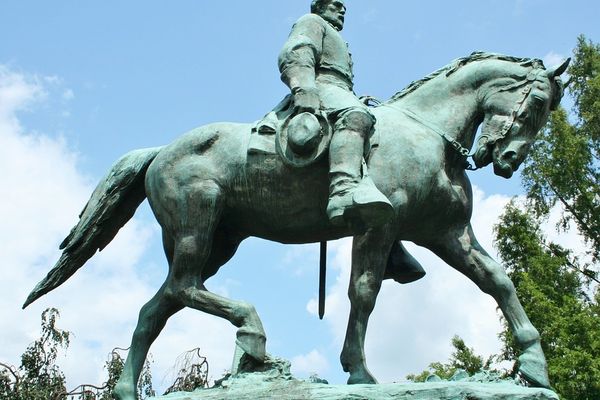When I first heard of the Kappa Alpha (KA) incident, I was conflicted. I am of two minds on COVID-19; while I am inclined towards safety — and an abundance of caution — I also despise restrictions and sympathize with those wanting to ignore them, despite their necessity. However, KA’s suspension is less about COVID-19 and more about politics.
The KA organization has a long history of questionable activity — and worse. Their behavior during the weekend before last gave Furman the opportunity to get rid of a PR nightmare. It was political expediency more than COVID-19 that got KA banned from campus.
KA was founded at Washington and Lee University in Lexington, Virginia in 1866. (W&L, as it is normally called, is the nation’s ninth oldest university). At the time, former Confederate General Robert E. Lee was President of that institution. Everything that I have ever read about Robert E. Lee indicates that he was an honorable and conscientious, though flawed and conflicted, man. He was favored by American officers to lead the Union Army against the South. However, after a struggle with his feelings and loyalties, he decided that he could not betray his own state: Virginia. He made the wrong choice—but his struggle speaks to a man who was moderate and humble.
After the Civil War, Southern politics were shaped by opinions that were anything but moderate and humble. Instead of recognizing the evils of slaver —and, indeed, the South’s inglorious defeat—powerful Southerners chose to construct a “Lost Cause” myth. In so doing, they built statues, constructed creeds, and engendered terrifyingly creative strategies to keep their power. With this movement, Kappa Alpha took shape at W&L under General Lee’s Presidency. That fraternity eventually spread to many American universities, including Furman.
What would you think if I informed you that the original Kappa Alpha fraternity based its initiation rituals on those of the Ku Klux Klan? But that is not true — it was likely the other way around. In 1915, a famed moviemaker named D.W. Griffiths released a film named Birth of a Nation which furthered the “Lost Cause” concept and lionized the KKK. That film was based on a novel—The Clansmen—which was written by a late-eighteenth century KA brother. It must be stated that it would be unreasonable to (1) not recognize that organizations change over time or (2) attribute the flaws of one man to an institution that he was associated with.
That said, recent incidents involving KA at several universities do not exactly differentiate the fraternity from its unseemly history. These include cases of extremely sadistic hazing, uncouth communications, and distasteful demonstrations.
Currently, our nation and institutions are being forced examine their past. Though merited, this process is both painful and dangerous. A misunderstanding or unfortunate association can destroy careers and reputations. In this political climate, it is terrifying for a university to be associated with an organization like KA, especially while Furman is trying to clean up its reputation and history. KA acted foolishly. In doing so, they gave Furman the excuse they needed—and likely have long been looking for—to excise a political liability.
